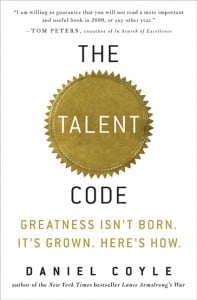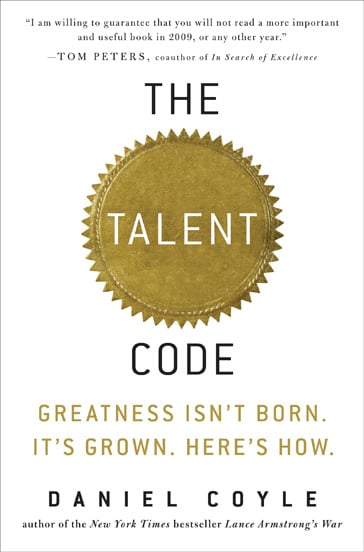Mr. Bellafiore,
The reason for this email is somewhat off the topic and a bit out of my curiosity. I read The Talent Code a little while ago and I just realize how much SMB Capital could relate to the book. For example, many good prop firms have multiple offices in multiple cities and even countries. However, you guys being one of the best have only one…..
curiosity. I read The Talent Code a little while ago and I just realize how much SMB Capital could relate to the book. For example, many good prop firms have multiple offices in multiple cities and even countries. However, you guys being one of the best have only one…..
But I believe there is more to it and that is you truly understand how skill building works and how to ignite them. By having only one office it gives traders a sense of scarcity. Therefore, they prepare and work hard every trading day so they don’t get kicked out. Then, your guy’s well known trading education and mentoring subconsciously deliver a message to the trader that it is not only about the money but rather they can learn a skill that will stick with them for the rest of their life. Those two itself created a very powerful trigger that enabled traders to outpour vast amount of energy into learning how to trade. A combination of scarcity, education, mentoring, unselfishness, and constantly stressing the importance of practice, it is no wonder you guys have a huge group of talented traders. Somewhat like the “Talent Hotbed” the author mentioned in the book.To my limited knowledge more than any prop firms I know.
… …but my question is did you purposely structure your firm the way it is or is it really too much work to open another offices? Oh and great job on your book it was an awesome read…
Special Guest Dan Coyle Responds:
I asked the true expert on this subject Dan Coyle, author of the must read for all traders The Talent Code his opinion. Dan generously shared:
Hey Mike,
Great question.
I think places that have had success in branch offices are ones that have an incredibly strong culture along with a fairly narrow skill they’re teaching. Suzuki violin is probably the best example. He developed a curriculum, a detailed ladder of songs, a nearly cult-like philosophy that he could use to teach more master teachers. Then it worked. Far more common, I think, are examples where branch offices fail because the assets that make the home office a success reside in the personality/character/drive of one person. It’s all about the master coaches.
Best,
Dan
Thank you Dan!


2 Comments on “Seek the Master Coaches”
One thing that has be to be addressed is accountability and beyond that the “purpose-ability” of trading claims. In essence, great claims require great proof. Several of the top trading vendors have been demonstrated to have no real ability to profit. Basically, if one is to claim they have the best training then an important metric is the profitability of themselves and their traders over both a relatively long duration and over the most recent period. It is important to look at both metrics because trading is constantly changing and short term performance is hardly conclusive of long term ability to subsist. But beyond, that one has to demonstrate purpose-ability which goes a step beyond accountability by explicitly defining the relevant audience.
Example:
Accountability -> trading statements or audited record
Purpose-ability -> clear sets of minimum requirements and guidelines, i.e you need 25k to do this
I have never worked for a prop firm nor do I know any prop traders. However, there a few firms that offer firm capital and training. My understanding is that SMB has set out to have the best educational firm. But, to do that he must also demonstrate that his firm is one of the most profitable too.
Thanks for sharing this. Watching the talent code video the author has put together reminded me of the Steve Vai videos you guys posted not long ago. These recommendations for peak performance are much appreciated 🙂